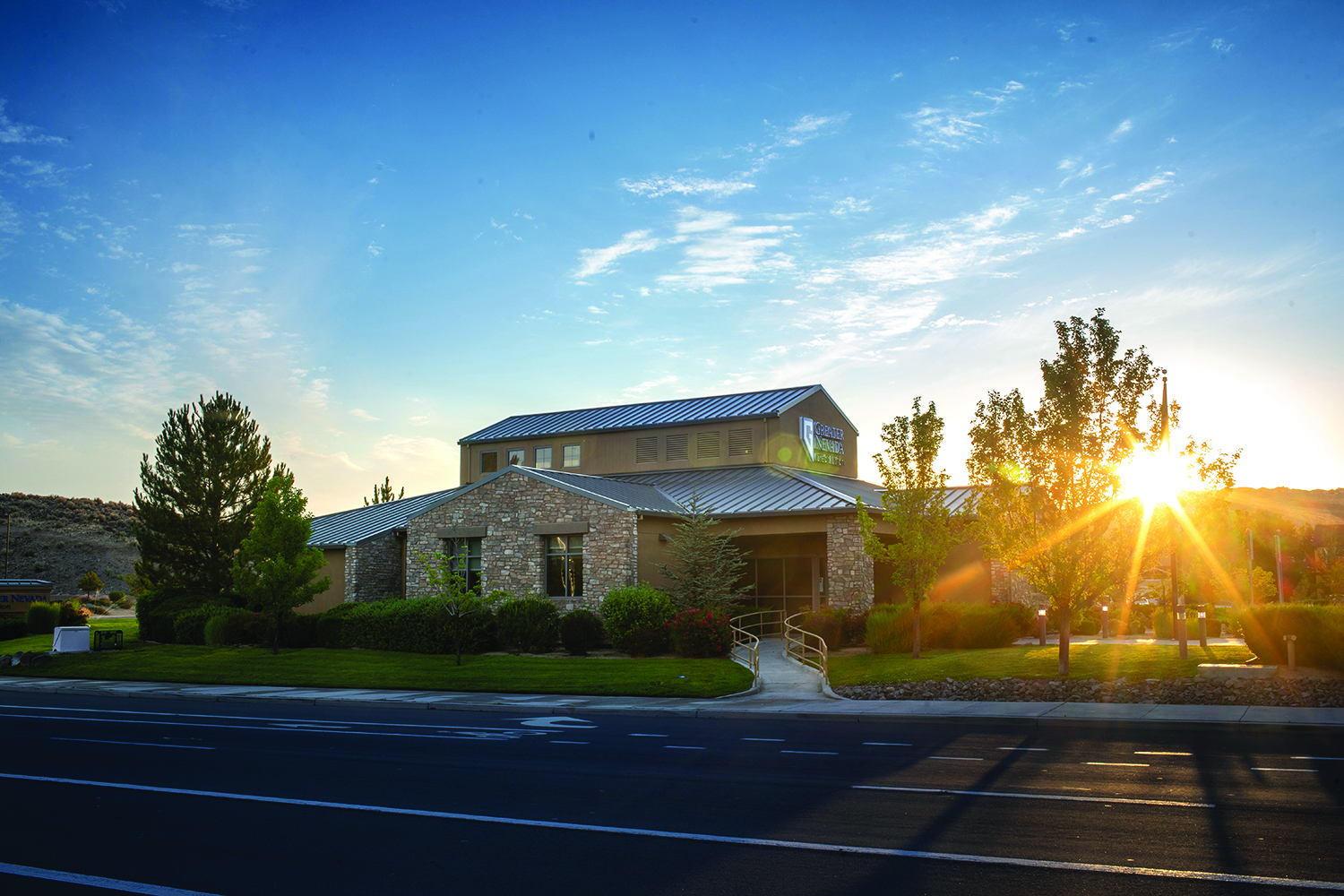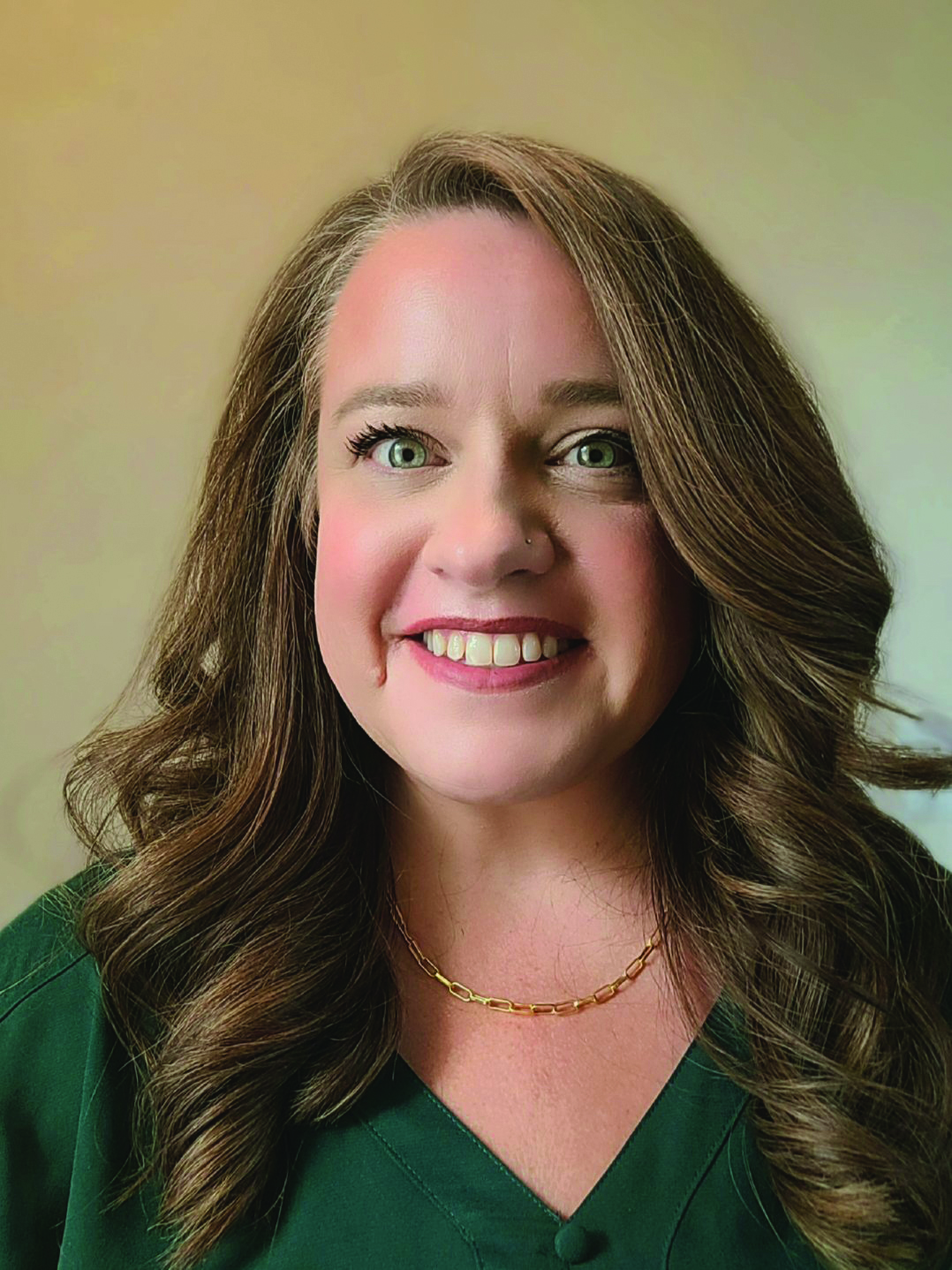Silver State Relief’s original location at McCarran Boulevard and Greg. Courtesy Silver State Relief
When medical cannabis became legal in the state of Nevada in July 2015, handling cash from pot sales was akin to a fantastical Hollywood script due to regulations that made the cannabis industry a cash-only business.
Aron Swan, chief operating officer at Silver State Relief — the first dispensary to open in the State of Nevada — recalls the days of lugging around backpacks stuffed with cash to pay the dispensary’s bills.
“Nine years ago, we didn’t have a business checking account,” he told NNBW. “We were able to do payroll, but we just had a ton of cash, and you can’t pay (most) bills with cash.”
The banking landscape has changed dramatically since those early days. Greater Nevada Credit Union began its cannabis banking program in 2020, and the program has proved to be a game-changer for cannabis-related businesses (CRBs).
“Nine years ago, I didn’t tell anyone what I did,” Swan said. “I played it down a lot for my safety. But I feel like I am operating a legitimate business now, and having a banking partner like Greater Nevada has been great for our business – it dramatically changed how we operate.”
Despite being legal in 24 states, recreational marijuana sales present a range of problems for dispensaries and other CRBs due to marijuana’s ongoing federal classification as a Schedule I substance under the Controlled Substance Act. Pot sales in the Silver State are big business — according to the Nevada Department of Taxation, sales of adult-use cannabis in Washoe County totaled $113,023,229 in fiscal year 2024. In Clark County, the number is staggering: $628,409,062.
Cannabis sales are still predominantly cash transactions — debit and credit card providers won’t work with CRBs due to current federal regulations. That means CRBs have massive amounts of cash flowing through their doors. Dispensaries and other CRBs have partnered with certain credit unions to handle traditional merchant and financial services. Credit unions operate in the space under guidelines by the National Credit Union Administration. While some regional banks have entered the space, banks with a national footprint have shied away en masse.

Courtesy Greater Nevada Credit Union
Greater Nevada Credit Union’s Spanish Springs branch.
Today, dispensaries that work with Greater Nevada deposit a day’s cash in an integrated smart safe that’s bolted to the floor. Cash leaves facilities under armored guard just like any other cash-heavy business — a stark contrast to the industry’s early days.
Swan said once a month he used to load up his backpack with between $200,000 to $300,000 in cash to pay Silver State Relief’s monthly bill at the Department of Taxation’s Reno office on Kietzke Lane.
“I was pretty nervous at first, but after time you do get desensitized,” he said. “Looking back, it was crazy that I had that much money on me.”
Paying that one bill also was about a four-hour affair, he added. The dispensary would count the money twice, then drive over and pay it in person – and at the onset, tax officials were hand-counting those large cash transactions, Swan said.
Paying Silver State Relief’s other bills, however, was an all-day affair that required multiple stops around town to gather enough money orders to pay dozens of vendors and service providers.
“I used to call it the tour of Reno,” Swan said. “I would get in my car and spend six to eight hours going around town getting money orders of $2,500 at a time from nine or 10 different facilities like grocery stores, payday loan centers to get a total of $20,000 to $30,000 in money orders. It was very difficult.”
Federal income taxes, meanwhile, approached $1 million and also were delivered in cash to Las Vegas.
“Looking back, it really was ridiculous,“ Swan said.
Silver State Relief operates three dispensaries in Northern Nevada: Its original location in Sparks at McCarran Boulevard and Greg Street; one in South Reno on Old Virginia Road; and one in Fernley.
Greater Nevada is approaching the four-year mark of its cannabis banking program. Kristin Stowe, Commercial Services Manager with Greater Nevada Credit Union, oversees all commercial deposit services, as well as Greater Nevada’s cannabis banking program. The well-received service enjoys a large market share in Northern Nevada, Stowe said, and GNCU is looking to expand into Southern Nevada as well, she added.
Initially, Stowe told NNBW, cannabanking services were limited, and there were barriers for how financial institutions could support CRBs due to federal regulations and compliance issues. GNCU’s cannabis banking program has evolved as auditors and regulators became more accustomed to the nuances of cannabis banking.
 Kristin Stowe
Kristin Stowe“We have been able to update some of our policies to allow these businesses to use banking services just like traditional businesses,” Stowe said. “We are able to provide traditional treasury management services because we have additional framework in place that adheres to compliance but also provides services just like any other type of business.
“Being able to pay taxes online, pay employees by direct deposit, or having a debit card where you can buy staff lunch because they hit a big goal weren’t in place years ago,” she added. “These updates allow us to provide enhanced banking services that are much more aligned with industry standards outside of cannabis.”
Under Stowe’s leadership, GNCU also revamped and reduced its fee structure.
“As more financial institutions come into this space, we realized we needed to shift and do more of a value-add program for our members,” Stowe said.
Greater Nevada Credit Union can serve a variety of CRB customers, including licensed dispensaries, cannabis cultivators and production companies, as well as non-licensed entities such as packaging companies and trade organizations. It also has a special program in place to support cannabis consumption lounges, which have been granted licenses to operate in the State of Nevada.
It’s been welcome for CRB operators such as Swan, who told NNBW he’s not left a facility with more than the personal cash in his wallet in the last four years.
“It’s been wonderful,” he said. “Now all that’s in my backpack is my laptop. It’s more efficient and safer, and it saves on the labor by not having people running around town getting money orders and handwriting them out and trying to account for all that cash on a monthly basis.
“We operate like a normal retailer now,” Swan added. “We have cash pickups, we can write checks, do payroll and all the other things a normal retailer does.”